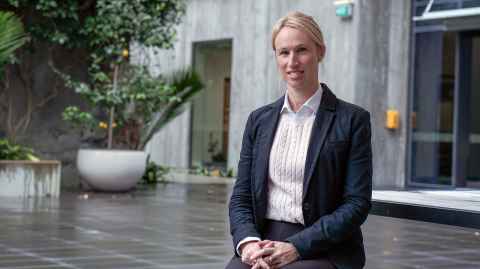Vape companies target the young via social media
18 August 2025
Research shows a leading e-cigarette brand’s global Instagram account is promoting vapes to vast audiences, including in New Zealand, where regulations prohibit vape marketing to young people.

Partnership deals with Formula One racing, and glamorous young influencers are promoting vapes to vast global audiences.
Many countries, including the UK and New Zealand, have brought in regulations to prevent marketing vapes to young people. Social media platforms also have policies for this purpose.
A new study has found, Vuse, the world’s leading e-cigarette brand is using a global social account to enter into paid partnerships, including a Formula One racing team, to promote vapes to massive audiences. (See Health Promotion International.)
“Collaborations with music festivals and influencers show that the company is targeting young people and may be using social media’s global reach to bypass local bans,” says Dr Lucy Hardie, a population health researcher at Waipapa Taumata Rau, University of Auckland, who led the international study.
“Fast cars and beautiful women are a tried-and-true marketing strategy used by the tobacco industry,” Hardie says.
The study reviewed more than 400 Instagram posts associated with the internationally leading e-cigarette brand, Vuse, owned by British American Tobacco, between August 2023 to July 2024.
Hashtags like #VuseInsider were used to promote brand ambassadors and festival experiences.
Collaborations with music festivals and influencers show that the company is targeting young people...
Vuse has partnerships with social media influencers who produce stylised ‘Get Ready with Me’ videos linked to music festivals.
“You see a beautiful young influencer choosing fashion and makeup set to cool music, a type of clip popular with young women. It finishes with her popping a vape into her handbag as she heads out the door to attend a music festival,” Hardie says.
Vuse also sponsors Formula One race team McLaren, meaning the company’s branding and logos are used in posts that are promoted to its nearly 14 million followers.
Despite the platform’s policy, these are seldom disclosed as paid partnerships, the study finds.
The researchers warn that Vuse’s global Instagram marketing strategy allows it to bypass national advertising bans, such as those in New Zealand and in the UK, effectively exploiting legal gaps and weak platform enforcement.
“Social media is borderless and so is this type of marketing,” Hardie says. “We urgently need global agreements restricting e-cigarette marketing on social media, and platforms need to enforce breaches of platform policy.”
“There needs to be greater scrutiny and accountability for brand partnerships that target vulnerable audiences with highly addictive substances.”

The long-term health effects of youth vaping are not yet known, but associations are emerging in research that link vapes to heart and lung conditions, as well as well-established issues related to nicotine addiction.
Another related study just published in BMJ Tobacco Control reveals how one New Zealand based vape company uses environmental schemes to maintain a presence at youth-oriented music festivals in New Zealand, despite a strict sponsorship ban since 2020.
The study, also led by Hardie with colleagues from the University of Otago and the University of Sydney, revealed that leading vape company VAPO has established a recycling initiative, VapeCycle, that can sponsor major festivals like Rhythm and Vines attended by more than 20,000 young people. The company’s branding is still featured at the festivals on recycling bins.
Hardie says the studies point to a need for stronger regulations and enforcement to better protect young people.
- Read more in The Conversation
Media enquiries
FMHS media adviser Jodi Yeats
M: 027 202 6372
E: jodi.yeats@auckland.ac.nz